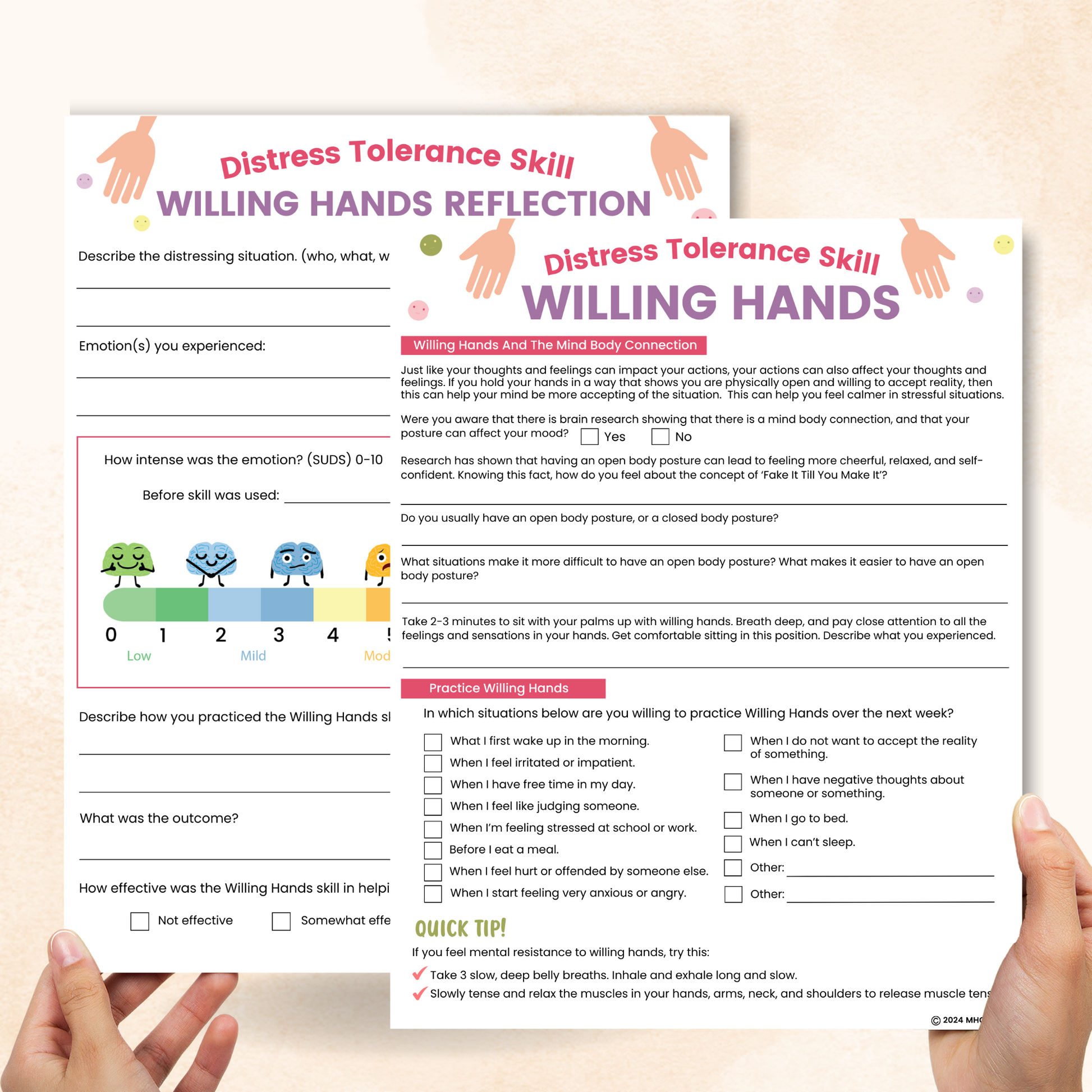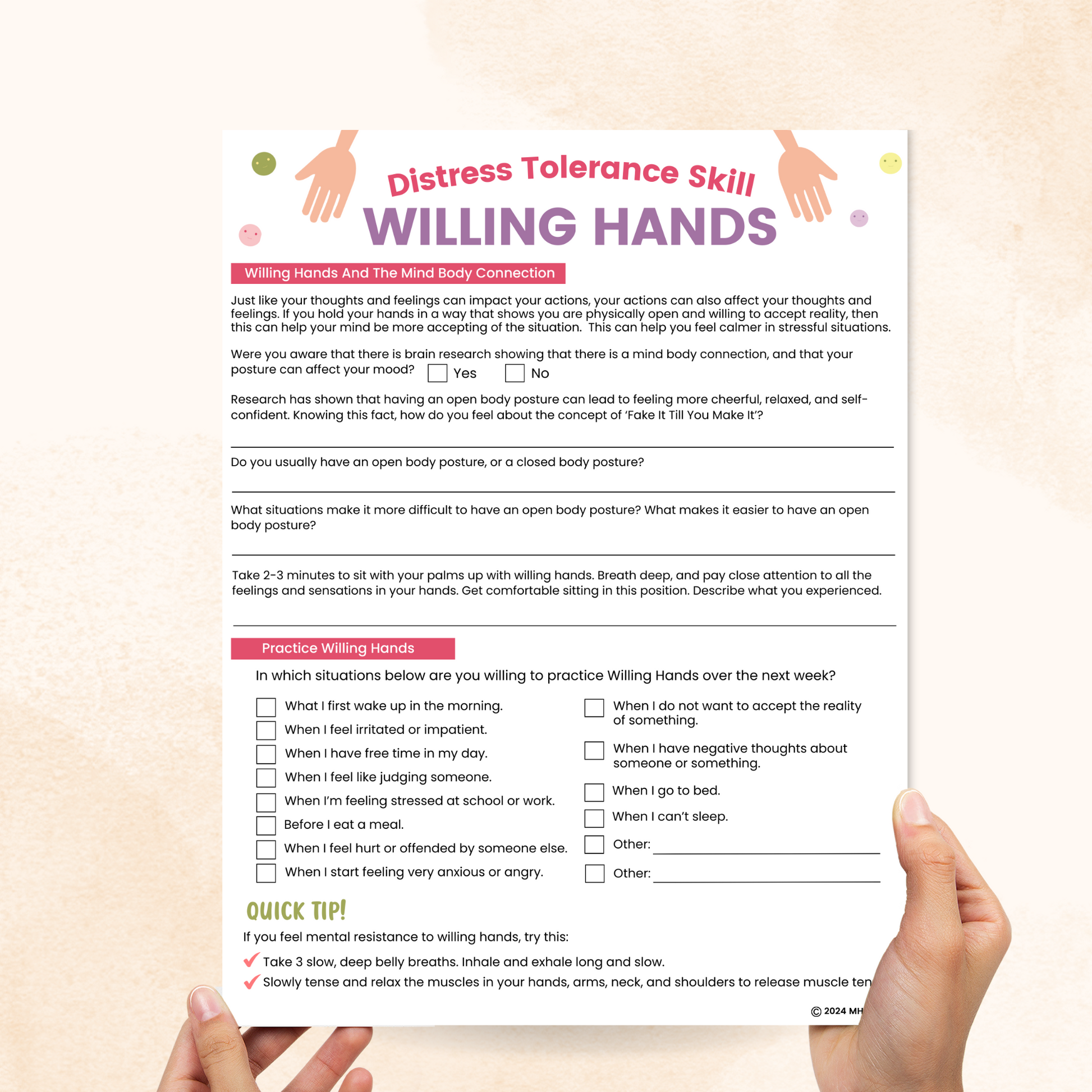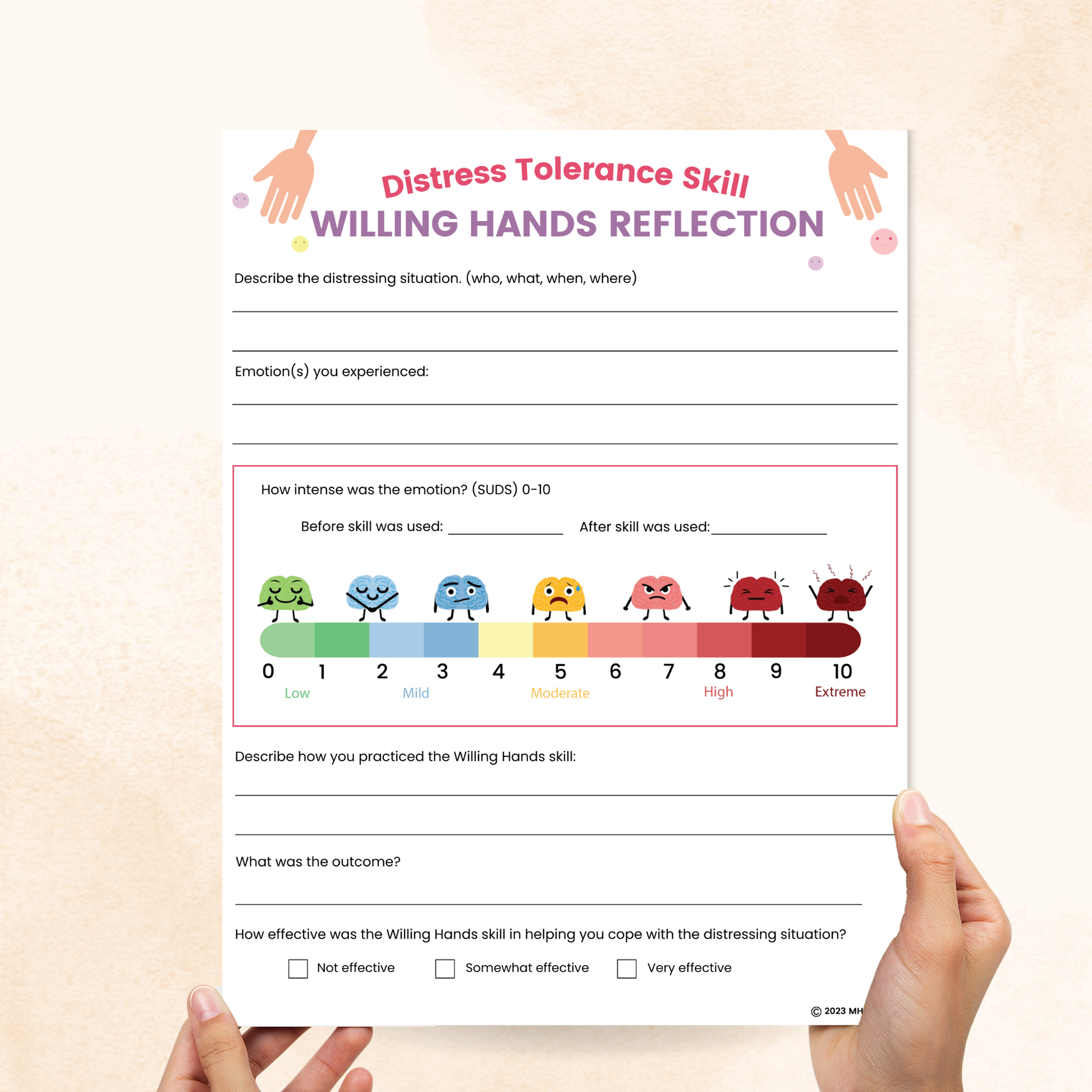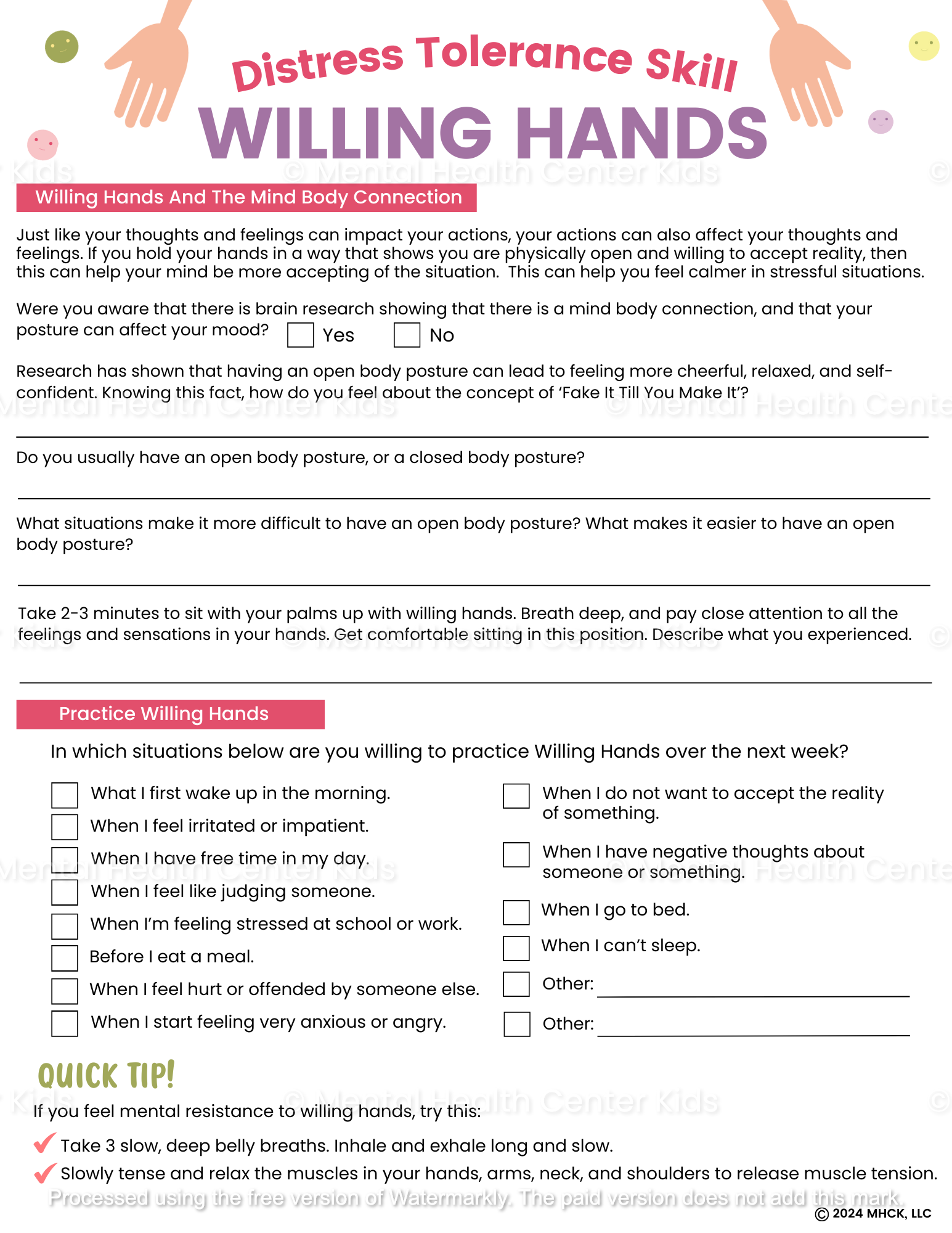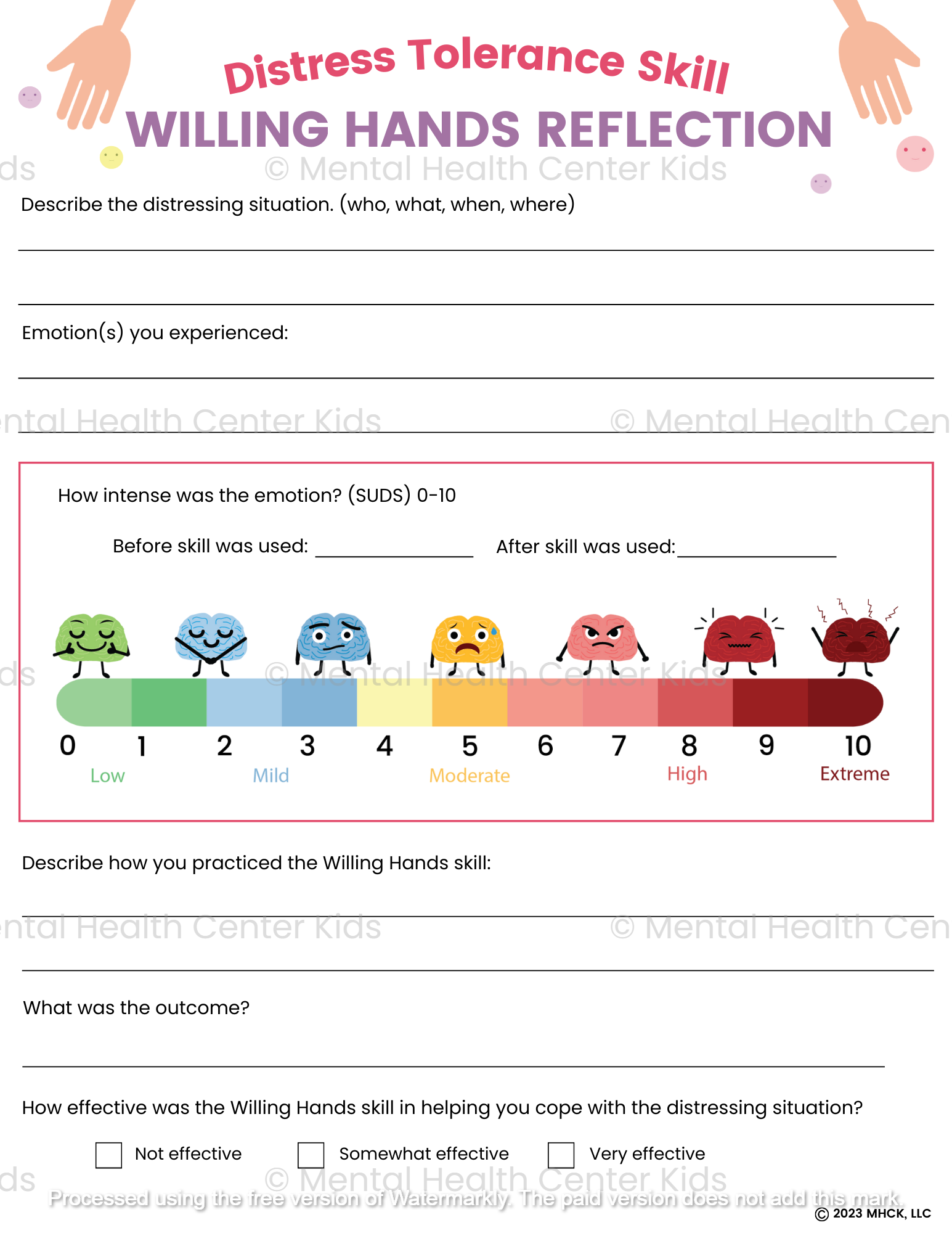DBT Willing Hands Worksheet
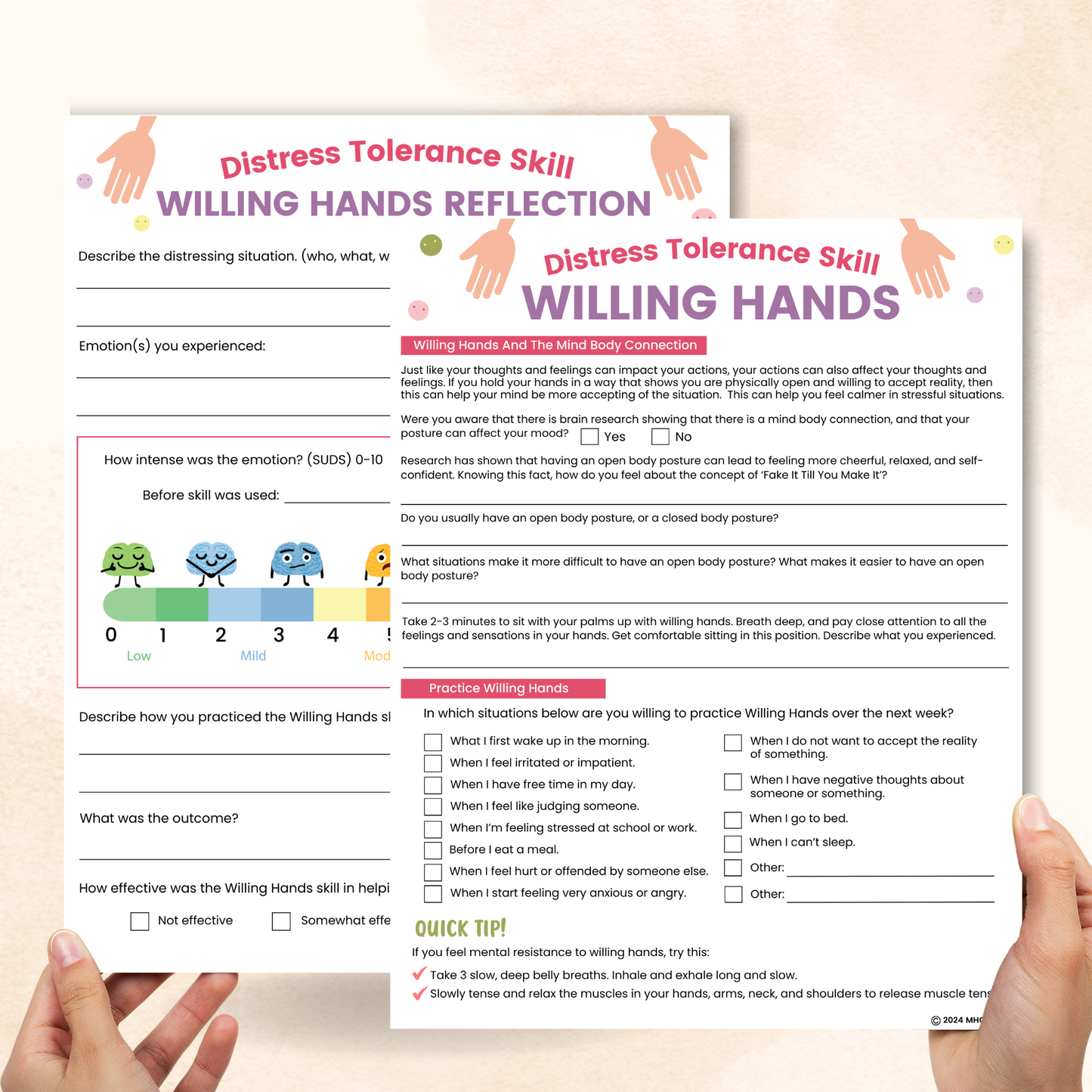
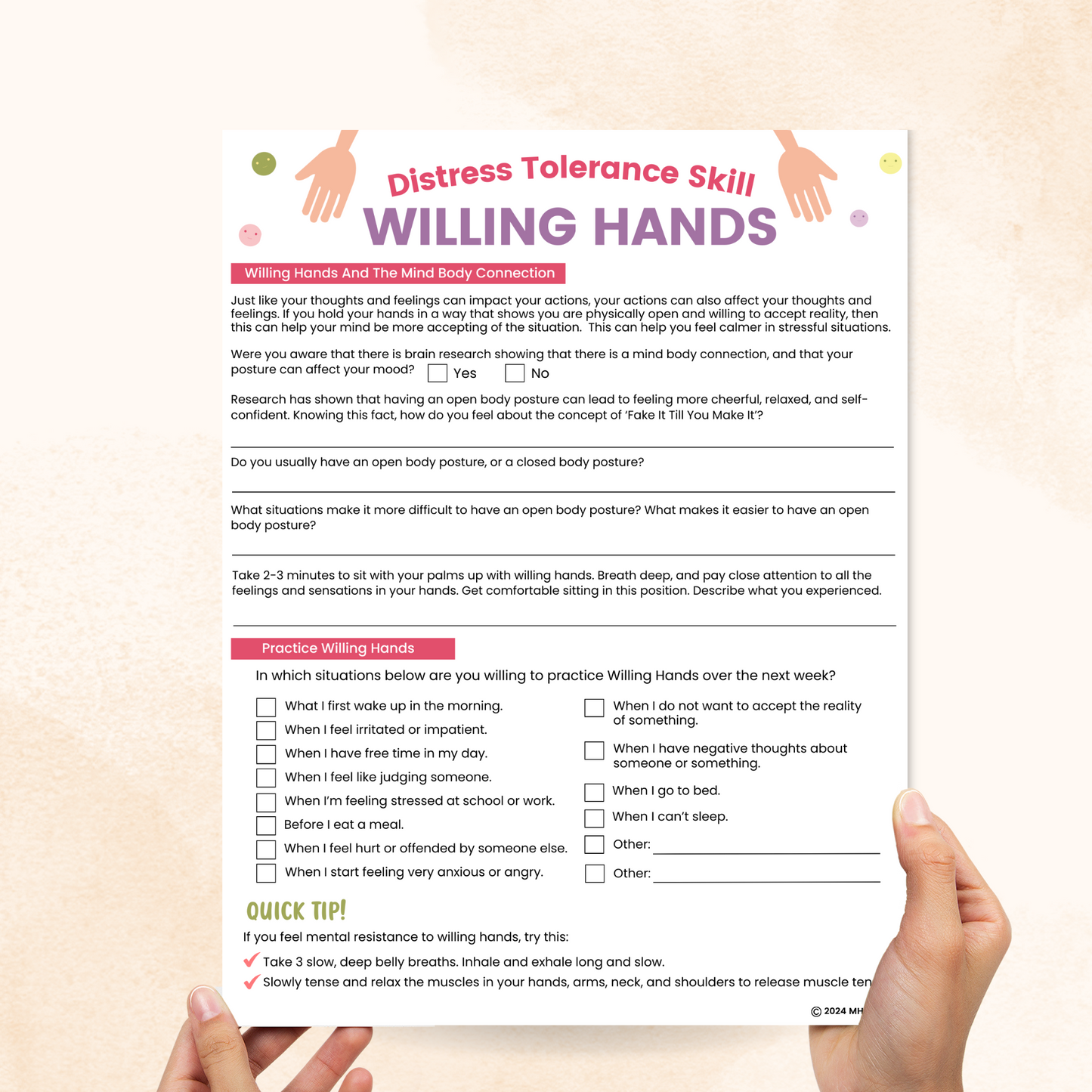
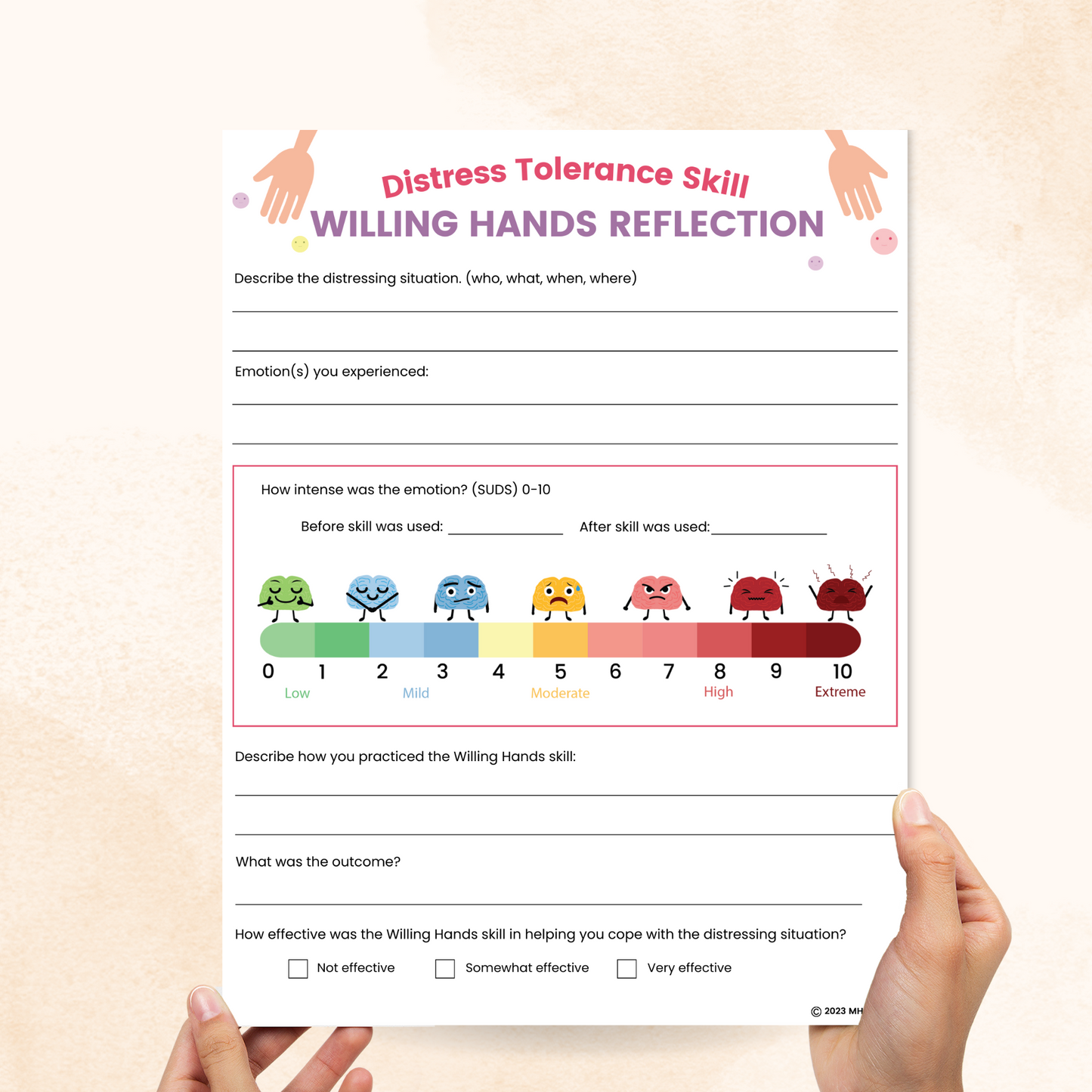
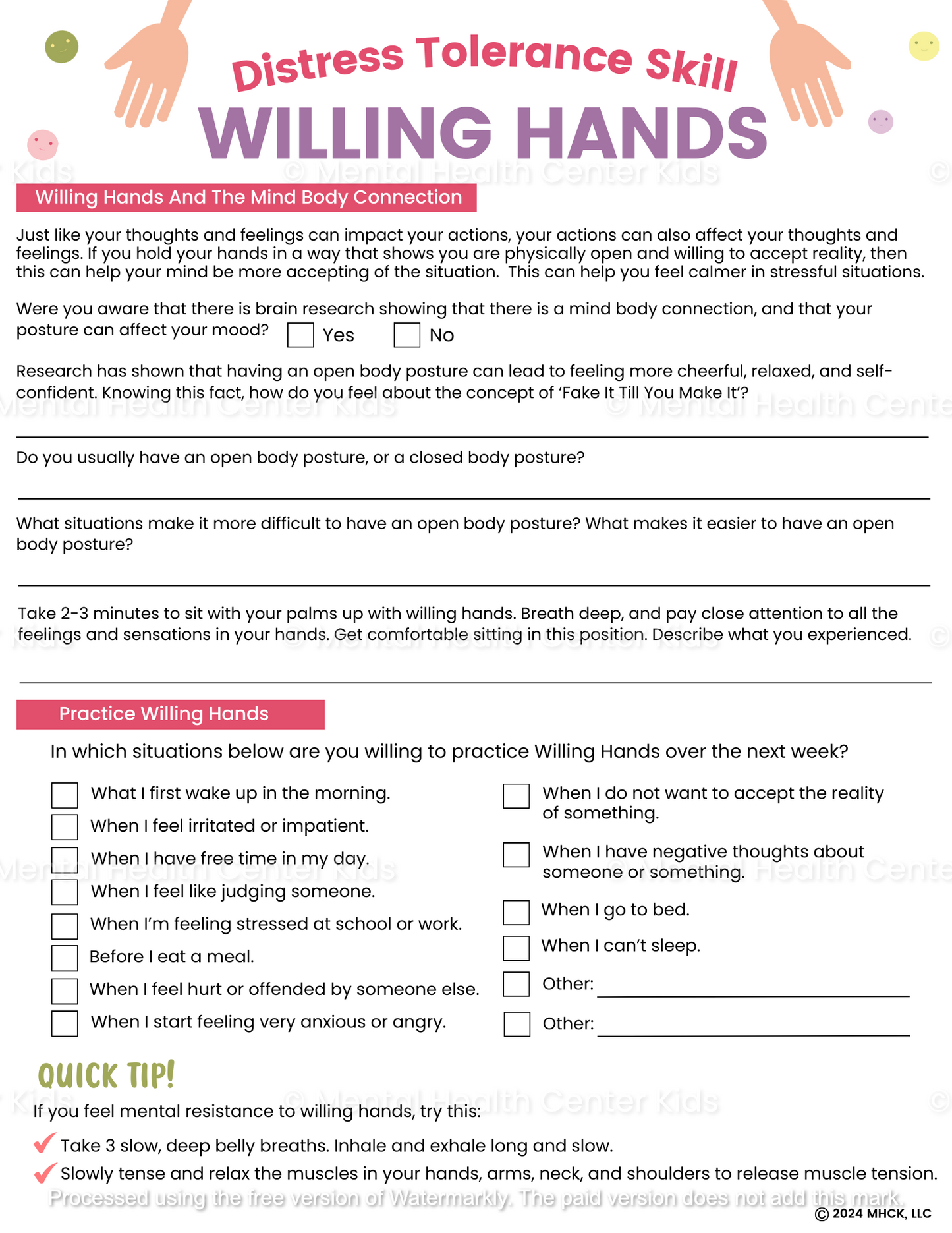
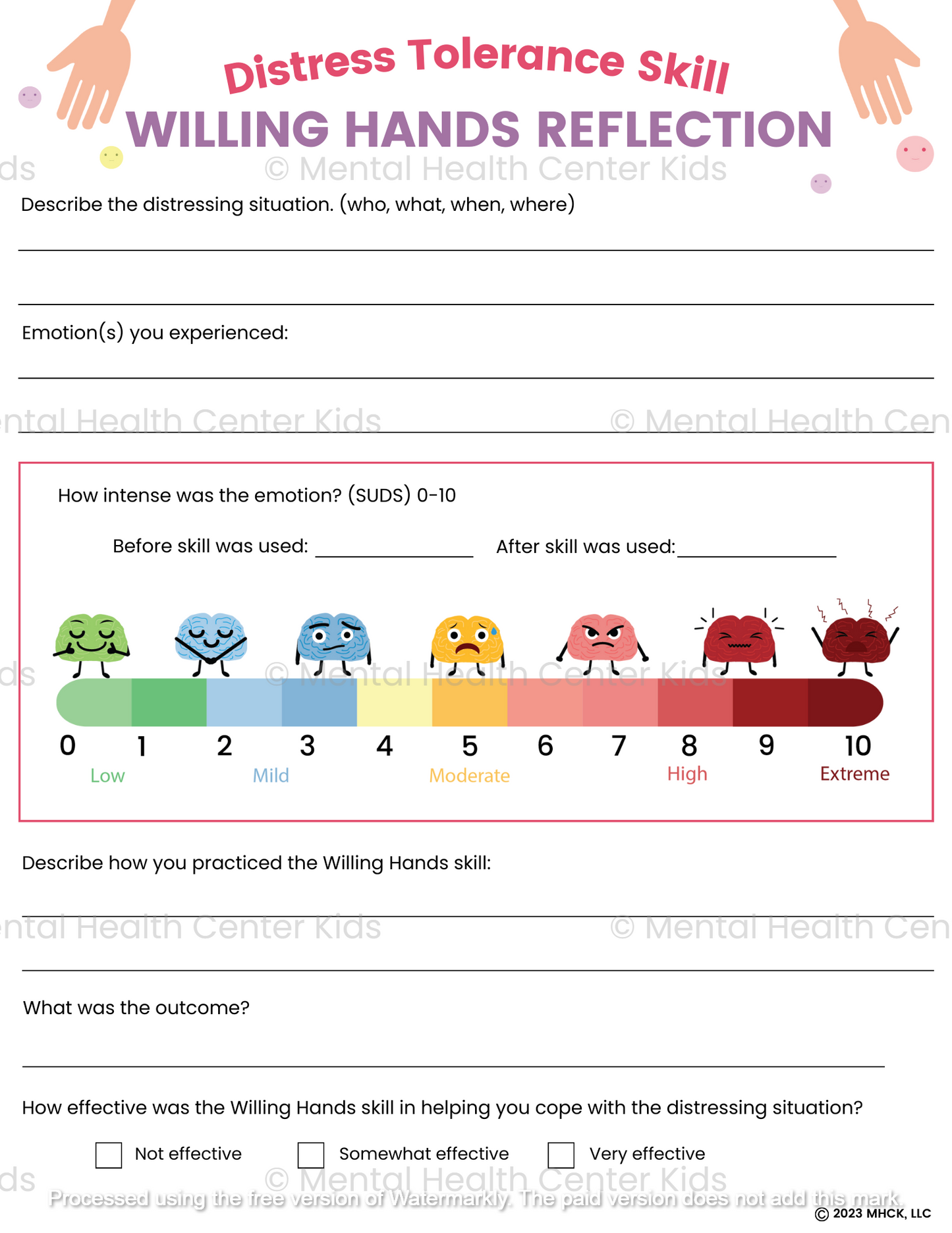
Willing hands is a skill used in Dialectical Behavior Therapy (DBT) in which a person adopts a posture where their hands are open, relaxed, and facing upward. This posture shows an openness and willingness to accept reality, which promotes calmness.
The DBT Willing Hands Worksheet includes a two-page worksheet activity that asks clients about their understanding of the skill and their personal experience with it. They are also asked to determine situations where they can practice willing hands. The second page lets them reflect on a distressing situation, describe their emotions, and rate the effectiveness of the DBT skill.
Using these worksheets gives kids and teens the opportunity to pay close attention to their feelings and sensations, which helps them experience relaxation during difficult moments. As a helpful tip, encourage clients to practice the technique in various positions: standing up, sitting down, or lying down.
To help reinforce the willing hands skill users can incorporate our DBT Half Smile and Willing Hands handout.
*This item is an instant digital download. A link to download your files will be emailed to you once payment is confirmed.
Want more resources like this? Check out our full catalog of DBT worksheets and handouts.
References:
- Chapman, A., Gratz, K., & Tull, M. (2011). The dialectical behavior therapy skills workbook for anxiety: Breaking free from worry, panic, PTSD, and other anxiety symptoms. New Harbinger Publications.
- Lp, J. E. P. (2015b). Dialectical Behavior Therapy Skills Training with Adolescents: A Practical Workbook for Therapists, Teens & Parents. PESI Publishing & Media.
- Linehan, M. M. (2014). DBT skills training handouts and worksheets. Guilford Publications.
- Soussignan, R. (2002). Duchenne smile, emotional experience, and autonomic reactivity: a test of the facial feedback hypothesis. Emotion, 2(1), 52.)
- Zvolensky, M. J., Vujanovic, A. A., Bernstein, A., & Leyro, T. M. (2010). Distress tolerance. Current Directions in Psychological Science, 19(6), 406–410. https://doi.org/10.1177/0963721410388642
- Instant digital download
- File: Fillable PDF - 2 Pages
- Size: 8.5" x 11"


